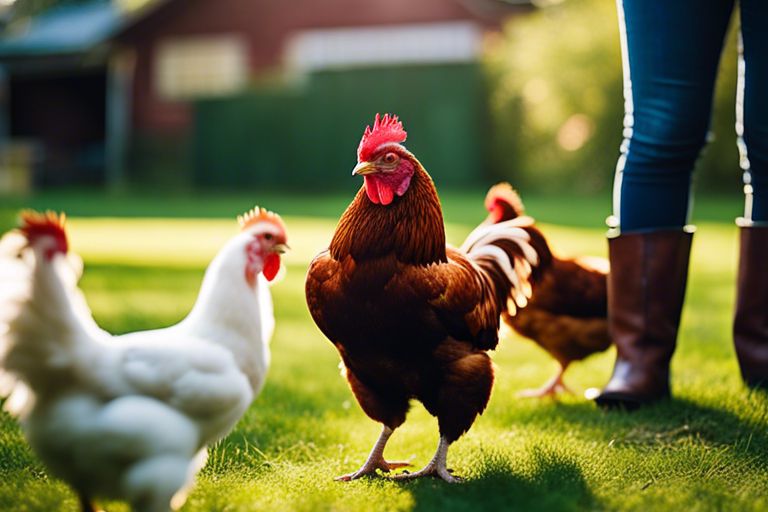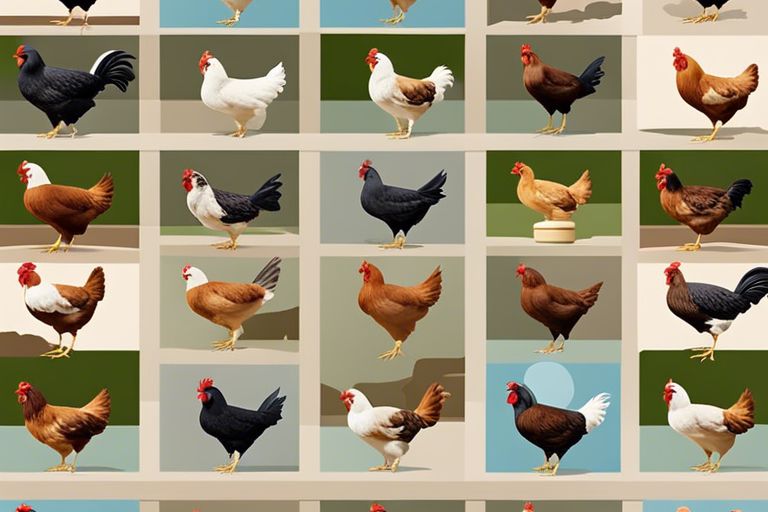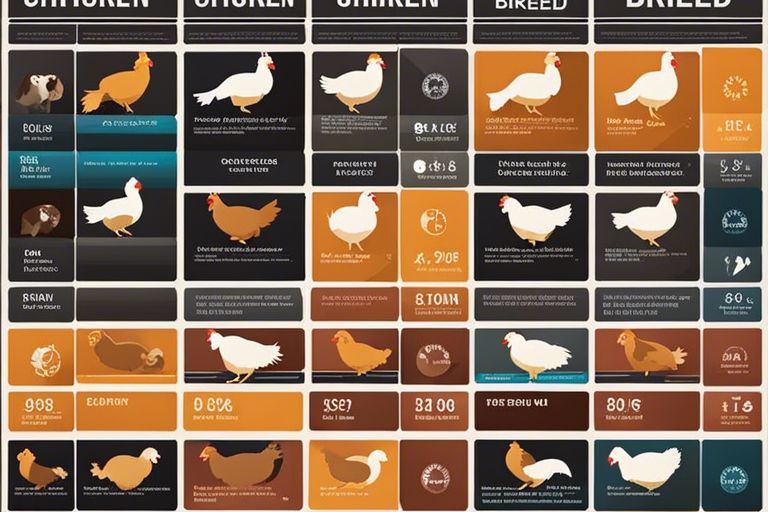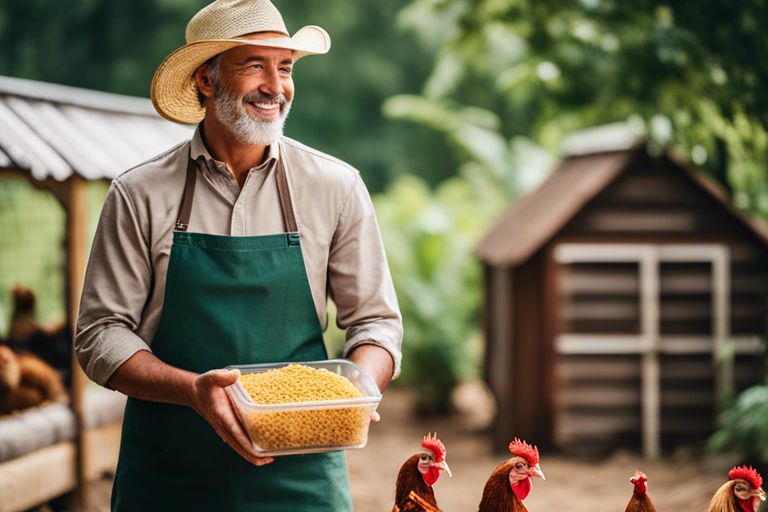Most beginner chicken owners often find themselves overwhelmed with the complexities of poultry care, especially when it comes to high-maintenance breeds. If you’re a first-time chicken owner looking for easy-to-care-for feathered friends, look no further. In this guide, we’ll introduce you to some of the most low-maintenance chicken breeds that are perfect for beginners. These breeds require minimal upkeep, making them ideal for those just starting their backyard flock journey.
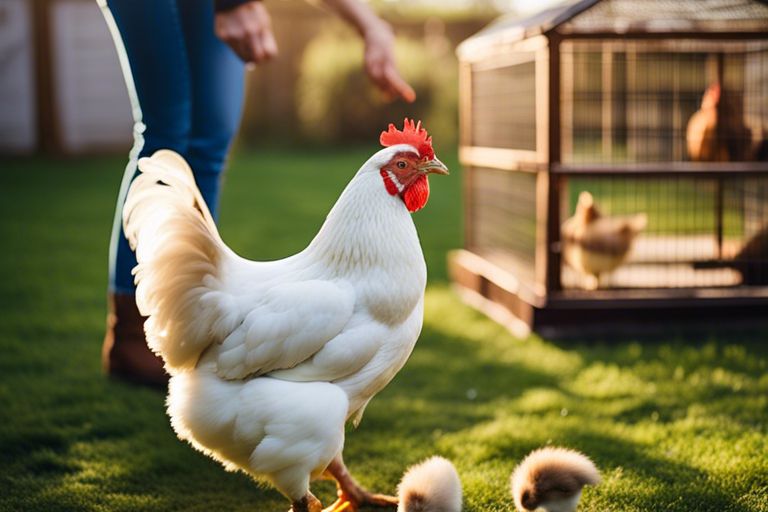
Understanding Chicken Needs
While chickens are relatively low-maintenance pets, they still require proper care and attention to thrive. Understanding their basic needs is important for first-time chicken owners to ensure the health and well-being of their feathered friends.
Basic Requirements for Chicken Care
An important aspect of caring for chickens is providing them with a suitable living environment. This includes a secure coop to protect them from predators and the elements, as well as access to clean water, nutritious food, and space to roam and scratch.
The Importance of Selecting the Right Breed
For first-time chicken owners, selecting the right breed is crucial to a successful chicken-keeping experience. Different breeds have varying temperaments, egg-laying capabilities, and space requirements. Choosing a breed that suits your lifestyle and needs will make caring for chickens easier and more enjoyable.
It is important to consider factors such as the climate of your area, the amount of space you have available, and whether you are primarily interested in eggs or meat production. Some breeds are better suited for cold climates, while others are more heat-tolerant. Researching breeds and their specific characteristics will help you make an informed decision.

Top Low-Maintenance Chicken Breeds
Australorp: The Hardy Layer
Chicken Australorps are known for their hardy nature and excellent egg-laying capabilities. They are low-maintenance birds that can thrive in various climates and are resilient to common chicken illnesses. These birds are a great choice for first-time chicken owners who are looking for a reliable egg producer.
Plymouth Rock: The Beginner’s Favorite
Beginners in the world of chicken keeping often choose Plymouth Rock chickens for their friendly disposition and easy-going nature. These birds are dual-purpose, meaning they are good for both egg-laying and meat production. They are also known for their adaptability to different environments, making them a favorite among novice chicken owners.
A popular choice for backyard flocks, Plymouth Rock chickens come in various colors, including Barred, White, Buff, Silver Penciled, and Partridge. They are known for their hardiness and ability to thrive with minimal intervention, making them an ideal breed for those new to raising chickens.
Sussex: The Friendly Fowl
Breeds like the Sussex chicken are prized for their friendly and curious nature, making them a joy to have in any backyard flock. These birds are known for their calm temperament, making them easy to handle and interact with. They are also good layers of large, brown eggs, adding practicality to their charming personality.
Hardy and adaptable, Sussex chickens do well in free-range environments and are excellent foragers. They are low-maintenance birds that do not require special care, making them an ideal choice for first-time chicken owners looking for a sociable addition to their flock.
Care Tips for Low-Maintenance Breeds
Many first-time chicken owners opt for low-maintenance breeds for their ease of care and hardiness. These breeds are perfect for beginners who are looking to start a small flock without having to dedicate too much time to their care. Here are some crucial care tips to keep your low-maintenance chickens healthy and happy:
- Provide a spacious and secure coop for your chickens to roost and lay eggs.
- Regularly clean and refresh their bedding to maintain a clean living environment.
- Ensure your chickens have access to fresh water and a balanced feed to meet their nutritional needs.
- Monitor your chickens for any signs of illness or distress and seek veterinary care if needed.
Perceiving any changes in your chickens’ behavior or health early on can help prevent any potential issues from escalating.
Feeding and Nutrition
Tips for feeding and nutrition include providing a balanced diet of chicken feed, supplemented with occasional treats such as fruits and vegetables. Make sure your chickens have access to clean water at all times and adjust their feed according to their age and activity level.
Health Monitoring and Preventive Care
Care should be taken to monitor your chickens’ health regularly by checking for any signs of illness, injuries, or abnormalities. Conduct routine checks of their eyes, comb, and feathers for any indications of poor health. Additionally, consult with a veterinarian to implement a preventive care plan, including vaccinations and parasite control measures.
Plus, establishing a good relationship with a poultry veterinarian can provide you with valuable guidance and support in maintaining the health and well-being of your flock. With proper care and attention, your low-maintenance chickens can thrive and bring joy to your backyard.
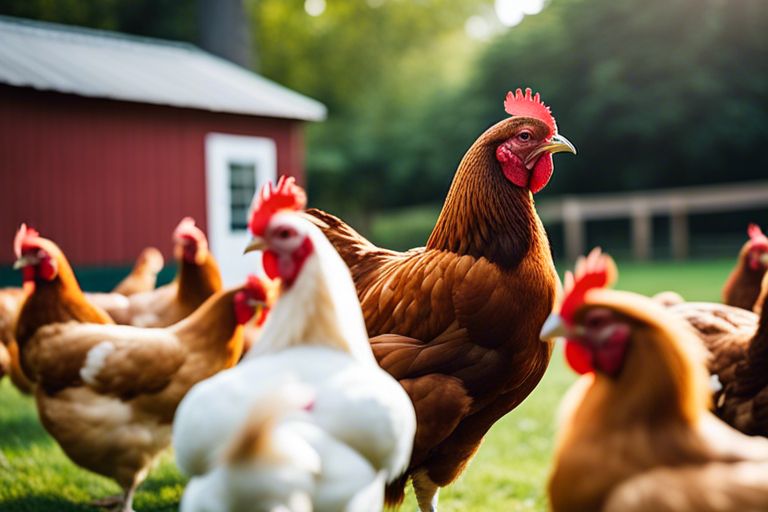
Setting Up Your Chicken Coop
Coop Design and Size Considerations
With low-maintenance chicken breeds, setting up your coop doesn’t have to be a complicated task. When considering the design and size of your coop, keep in mind that each chicken requires at least 2 to 4 square feet of space inside the coop and 8 to 10 square feet in the outdoor run. Make sure the coop has good ventilation, natural light, and easy access for cleaning to maintain a healthy living environment for your flock.
Security Against Predators and Weather Protection
Considerations for security against predators and weather protection are crucial aspects of your chicken coop setup. Predators such as foxes, raccoons, and even neighborhood dogs can pose a threat to your chickens. Ensure your coop has sturdy locks, buried wire mesh fencing, and a secure roof to keep predators out. Weather protection is also important, so make sure your coop is insulated and draft-free to keep your chickens safe and comfortable in all seasons.
Plus, it’s a good idea to install motion-activated lights or alarms to deter nocturnal predators and provide an added layer of security for your flock.
To wrap up
From above, choosing low-maintenance chicken breeds for first-time owners is crucial for ensuring a positive experience in backyard chicken keeping. By selecting breeds like Rhode Island Reds, Plymouth Rocks, or Sussex chickens, new chicken owners can enjoy hardy and docile birds that require minimal care and attention. Remember to provide them with a secure coop, access to fresh water and feed, and regular health checks to keep your feathered friends happy and healthy. With the right breed and proper care, raising chickens can be a rewarding and enjoyable hobby for beginners.
FAQ
Q: What are low-maintenance chicken breeds for first-time owners?
A: Low-maintenance chicken breeds for first-time owners include Rhode Island Reds, Sussex, Orpingtons, and Wyandottes. These breeds are known for being hardy, docile, and easy to care for.
Q: How do you ensure the health of low-maintenance chicken breeds?
A: To ensure the health of low-maintenance chicken breeds, provide them with a clean and dry coop, fresh water, balanced feed, and regular check-ups by a veterinarian. Additionally, practice good biosecurity measures to prevent diseases.
Q: What kind of housing do low-maintenance chicken breeds require?
A: Low-maintenance chicken breeds require a secure and well-ventilated coop with nesting boxes, roosting perches, and access to a run or free-range area. The coop should be easy to clean and protect the chickens from predators and harsh weather.
Q: How should low-maintenance chicken breeds be fed?
A: Low-maintenance chicken breeds should be fed a balanced diet of commercial chicken feed that is appropriate for their age and stage of production. Additionally, provide them with fresh fruits and vegetables as treats and access to grit and oyster shells for digestion and calcium intake.
Q: What are common health issues in low-maintenance chicken breeds?
A: Common health issues in low-maintenance chicken breeds include parasites (such as mites and worms), respiratory infections, and egg-laying problems. It is important to monitor your chickens regularly and seek veterinary care if any health issues arise.
Q: How do you handle egg production in low-maintenance chicken breeds?
A: To handle egg production in low-maintenance chicken breeds, collect eggs daily to prevent them from becoming dirty or getting cracked. Provide nesting boxes with clean bedding for the hens to lay eggs and ensure they have access to a healthy diet for optimal egg production.
Q: Are low-maintenance chicken breeds suitable for children to raise?
A: Yes, low-maintenance chicken breeds can be suitable for children to raise under adult supervision. They can teach children responsibility, empathy, and respect for animals. However, it is important to educate children on proper chicken care and hygiene practices.
